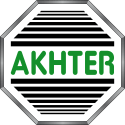Working in the Corporate Sector
Akhter can support the day-to-day needs of a corporate client.
Akhter Computers is a leading provider of technology solutions for the corporate sector, offering a wide range of products and services tailored to meet the needs of businesses of all sizes.
Our problem-solving skills and fast response to client demands is one of the recognised Akhter strengths, being one of very few PC suppliers with UK manufacturing facilities coupled with our R&D expertise enables Akhter to respond flexibly when more specialist IT system requirements arise.
Our knowledge of Microsoft systems enables us to deliver many network solutions to businesses, including Virtualisation, Cloud Computing, Collaborative Working Environments via secure access remote working capabilities and Unified Communications.
In addition to desktop computers, Akhter Computers also specializes in providing robust server and networking solutions to meet the demands of modern businesses. Their servers are designed to deliver high availability, scalability, and security, making them an ideal choice for hosting critical business applications and data. Furthermore, Akhter Computers offers a comprehensive range of networking equipment, including switches, routers, and firewalls, to ensure seamless connectivity and data transfer within the corporate environment. With a focus on performance, reliability, and security, Akhter Computers is dedicated to providing top-of-the-line IT products that empower businesses to thrive in the competitive corporate sector.
In the corporate sector, hardware plays a crucial role in facilitating operations, improving productivity, and enabling communication. Here are some key categories of hardware commonly used in corporate environments:Computers and Workstations: Desktops, laptops, and workstations are foundational hardware for employees. They vary in specifications to suit different tasks, such as graphic design, software development, or data analysis.
Servers: Powerful computers that manage network resources, store data, and host applications. Corporations use different types of servers, including file servers, application servers, web servers, and database servers.
Networking Equipment: Essential for connecting devices within a corporate network. This includes:
Routers: Direct network traffic and connect different networks.
Switches: Facilitate communication between devices on the same network.
Firewalls: Provide security by monitoring and controlling incoming and outgoing network traffic.
Storage Solutions: Hardware for data storage, including:
Hard Disk Drives (HDDs) and Solid State Drives (SSDs) for local storage.
Network Attached Storage (NAS) devices for centralized data access.
Storage Area Networks (SANs) for high-speed and scalable data storage.
Printers and Scanners: Essential for producing hard copies of documents and digitizing physical documents. Modern multifunction printers (MFPs) often combine printing, scanning, copying, and faxing capabilities.
Telephones and Communication Devices: Traditional desk phones, VoIP phones, and communication tools like headsets facilitate internal and external communication.
Video Conferencing Equipment: Hardware for virtual meetings, including:
Cameras: High-definition cameras for clear video quality.
Microphones: Quality microphones to capture clear audio.
Displays: Large displays or projectors for better visibility during meetings.
Point of Sale (POS) Systems: Used in retail and service industries to facilitate transactions, including hardware like card readers, cash registers, and barcode scanners.
Workstations for Specific Functions: Specialized hardware for specific tasks, such as:
Graphic workstations for designers (high-performance GPUs).
Testing and development hardware for software engineers.
Mobile Devices: Smartphones, tablets, and laptops enhance mobility, allowing employees to work remotely or while on the go.
Security Hardware: Devices to protect corporate assets, such as:
Surveillance cameras for monitoring premises.
Biometric devices for access control (fingerprint or facial recognition).
Hardware security modules (HSMs) for ensuring secure data processing.
IoT Devices: Smart devices connected to the Internet that can collect and transmit data to optimize operations, such as smart thermostats, sensors for environmental monitoring, and connected machinery.
Backup Solutions: Hardware like external drives, tape drives, and cloud-based solutions ensure data redundancy and disaster recovery.
The integration of hardware in the corporate sector facilitates efficiency, enhances communication, and supports the technological infrastructure necessary for modern business operations. Organizations must consider their specific needs when selecting hardware to ensure it aligns with their goals and operational requirements. As technology advances, businesses are also challenged to keep up with trends in hardware to remain competitive and secure.
Talk to one of our advisors, we're here to help.
